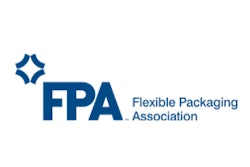The food processing industry kept food in our stores and meals on our plates despite unprecedented workforce issues, food shortages and pandemic-based plant closings over the past year and a half. For the inaugural unPACKed with ProFood World, newly appointed Editor in Chief Aaron Hand revisits the year in food processing and discusses the industry’s plans going forward to ensure better-prepared facilities to deal with unexpected events, like a global pandemic.
To subscribe, rate, review and find more unPACKED podcast episodes, visit pmmi.org/podcast or find us on Apple podcasts, Spotify or iHeart Radio.
 | Read the full transcript below. |
Sean Riley:
... and welcome to the podcast for the first time, Aaron.
Aaron:
Thank you, Sean. I appreciate the opportunity.
Sean Riley:
So we haven't had many processing podcasts and it's great to have you on, representing the ProFood World brand. So what we're looking for and what I'm really the most curious about is we're coming out of COVID-19. We know the pandemic has had an effect on basically everything. One of the industries that got hit the hardest was food and food processing.
Sean Riley:
Has it had an effect, I guess, going forward, on how the manufacturers are going to design their plants and how they're going to incorporate some changes they've had to make as a result of things they've uncovered during the pandemic?
Aaron:
Certainly, yes. The short answer is yes, and you're right. The food industry has been hit hard, on two ends, one so much being shut down, but also having to really scramble to get orders filled, like on the grocery side. We'll talk a little bit more about that later, but really many of the adjustments that food and beverage plants have had to make to deal with COVID-19 will carry over into designs for factories and production lines going forward.
Aaron:
I actually, for a recent story I was working on, I talked with several architecture and engineering firms on food and beverage plant construction, how that's looking post pandemic. And certainly, one thing that everybody had talked with agrees on, is that the industry needs to be better prepared for the next pandemic. And it's considered inevitable that there will be another one; whether that's another coronavirus or some other type of contagion.
Aaron:
There was actually a study done by AIB International in which 78% of food and beverage executives said that they're actively preparing for future global pandemic. So close to a third of those responding expected to see another pandemic within the next four years, even. So no matter how much you may or may not believe that, or when you think it might come, nobody wants to get caught off guard again. So I don't want to throw a bunch of numbers at your listeners, so I'll just say that the majority of those surveyed felt that their company did not have an adequate plan in place to deal with COVID. And that's certainly not hard to believe from a consumer perspective.
Aaron:
We saw what those grocery store shelves looked like, particularly near the start of the pandemic. And on ProFood World, we were covering a lot about the struggles that the meat plants had in keeping their workers safe, especially in an industry where workers are standing shoulder to shoulder. So there are all sorts of places in the facility to address some more obvious things like social distancing or sanitation or the masks might go away, but the plexiglass probably is not.
Sean Riley:
Interesting. And it still baffles me to a degree because you're dealing with food and you would just think that long-term, these would be the types of companies that would have sort of a science background and have an idea that these types of, well, not a pandemic of this level, obviously, this is unprecedented, it's every 100 years you expect something like this, but you would think they would have something in place to help adjust or prepare better. So I guess going forward, is there even an emphasis on making things cleaner or keeping things in a situation where there won't be problems with people standing on top of each other?
Aaron:
Certainly. Yeah. And I think that's my perception too. I would think it would be a common perception that these are clean places where they're manufacturing our food. And that is true. So, in a lot of ways, the food and beverage industry is not facing the same issues on the plant floor with sanitation, because they are already working to very hygienic processes. They know how to keep their equipment clean, their manufacturing space clean. So they're actually looking more at how they spread those already high cleanliness standards, further appealed; applying what they know about keeping equipment clean to then the workstations or the common areas like break rooms or locker rooms. There'll be more places for employees to wash their hands, more touchless faucets and doors, more foaming stations and boot washes, all those kinds of things.
Aaron:
And manufacturers are looking a lot at their airflow. So some of the architecture and engineering firms are being asked to look more at sectioning, the HVAC into different areas, for example. Just thinking in general about where the air is flowing from and where it flows to.
Aaron:
And actually, it's funny to think about. I think every topic I've written on this year has been affected by COVID in some way, that the technology has. So I was actually writing a story earlier this year, just about motors, which was just a basic technology update. But one of my sources, Alex Kanaris, he is the president and CEO of Van der Graaf, which makes drum motors. He took a picture just as a joke of a face mask covering an electric motor, just to prevent the forced air flow from carrying microbes to the food that was being processed, and it turns out it wasn't such a joke. They ended up running some experiments that showed just how serious that issue was. You think about all of the motors that are in a plant and there's air being forced out of those motors. Well, that air could be a sick worker standing nearby, forcing that air on directly onto the food that's being processed on the conveyor belt.
Aaron:
So there's certainly a lot to think about in terms of airflow. And they're also managing traffic flow too. So upping the number of guard stations at a particular plant so that everybody is not entering in at the same place. They're building wider hallways, basically trying to figure out, "If we have a sick person, how do we make it so that they're not passing by everybody else on their way out the door?"
Sean Riley:
Interesting. And the thing with the air is a fascinating aspect of all this that I hadn't thought of it either. I remember when things started opening up, it seemed like I personally would feel more concerned being in a larger, say an arena of people, versus a smaller restaurant. And actually they said, it's the opposite because those larger arenas have these high turnover HVAC units that makes the air get replaced more often. So it's constantly clearing the air and bringing in new air, which it's just not something that we ever had to think about before now.
Aaron:
Oh, wow.
Sean Riley:
I guess the obvious thing when dealing with food processing, is how I guess did robots increase in use or automation in general? And I guess, how are they going to be designed going into the future into manufacturing lines?
Aaron:
Yeah. And that's actually a pretty interesting thing, because I think a lot of us had high expectations for the role robots would play in social distancing, in particular. And I know you spoke with Automation World's David Greenfield just a couple of months ago on this podcast, about how robotics were shaping up in the wake of the pandemic. And it sounds like from what he's seen, that there was not widespread adoption of robotics as a result of the pandemic, across all industries, let alone food and beverage, where my perception at least, is that they're a little further behind a lot of other industries in terms of the automation that they want to use.
Aaron:
There was certainly a lot of expectation early in the pandemic about the role that robotics could play to create more social distancing, especially collaborative robots, that they're able to be much more flexible in where you can place them, they're cheaper. You can get them right in there next to the workers and it seemed prime for that sort of thing. And I actually covered a panel of robot executives early in the pandemic. This was April, 2020, where they were clearly excited about the prospects and talking about how they had been able to help manufacturers retool their lines to start making PPE or testing the kits or hand sanitizer, the things that were needed for the pandemic. Sorry, I could actually talk about robots all day.
Aaron:
But my point is that I don't think we've seen much of that in the food industry, at least as a way of providing social distancing. When I talked with the architecture and engineering companies, it seems more like, yeah, cobots would be a good way to supplement and space out the workforce, especially for manufacturing facilities that are limited by their existing space, but not that they were actually seeing that from their clients. But I think they are starting to see a little bit more of that and expect it going forward. And really, that's the key in a lot of this discussion, is that these were trends that were happening already before, whether it's cobots or increased automation or digitalization in general. And the pandemic has perhaps made some of these manufacturers more open to discussing these points and more open to making these plans for their facilities going forward.
Sean Riley:
Is it still coming down to they think they're too expensive?
Aaron:
I do think there is a lot of just trying to justify the costs. And actually, I do have an example from a snack maker who approached this, and this would be one way for manufacturers to approach this, is they had a new product line. They didn't know how that product was going to perform in the market, so they did not want to make that automation investment upfront. But they had workers standing shoulder to shoulder packing boxes, which they couldn't have during COVID.
Aaron:
So they actually got spec engineering in there to come up with a system to space the workers for their part. So in the interim, they basically just elongated the conveyor, added barriers in between the workers and incorporated a different air handling system to draw the air away from the workers. But in the longterm, now that this new product is selling so well, this snack maker is pulling the capital together to fully robotically, automate that packaging line. So, that is one way to handle it.
Sean Riley:
Interesting. And I wonder if the recent sort of social awareness of salaries and in some of these facilities, how little the people on the plant floor might actually be earning, might change the ability to, I guess, hire that cost-effective workforce for lack of a better word and make it not as hurtful on the wallet, I guess, for lack of a better term, to get cobots or robots.
Sean Riley:
So I guess, how about other forms of automation? What other kinds of things are they going to incorporate to sort of help move things along?
Aaron:
Well, it's sort of a mixed bag here because beverages and packaging lines lend themselves a bit more to increased automation than say lines where workers are cutting and chopping. Although just a side note, I have to just throw in, I just saw some really cool research this week that I plan to report on, where robot researchers from Nvidia and USC are working on autonomous robotic cutting of soft materials, so it could be used to cut a tomato, say something that's not very easy for robots to do right now. But anyway, I just thought that was cool.
Sean Riley:
Yeah.
Aaron:
You have things like meat processing that does not lend itself too well to automation. The animals lack uniformity. They don't come into the work cell in the same way, but there are other areas where automation makes more sense. Like Kraft Heinz is one example, where they made a significant investment during the pandemic to automate their clean in place system. So it was already again, being considered before the pandemic, but once the pandemic hits, they were like, "We need this now," because it makes even more sense because it relies so little on humans having to clean the systems.
Aaron:
And getting to your point about salaries in the workplace and about their ability to find workers, yeah, the pandemic has exacerbated that as well. So, already having trouble filling their workforce, that's even more so, which does make more of an argument of why they need the robots; not to replace workers, but to get production going, even though they don't have the workers.
Sean Riley:
Interesting. And that actually ties into, you mentioned Dave Greenfield earlier. He had actually spoken to that also to a level of, they're not replacing the workers, they're giving the workers new positions, sort of controlling these robots and running these robots, which for them, gives you a little more sense of purpose and in improving their position in the workplace in general. And I thought that was an interesting point that David raised previously.
Aaron:
Right.
Sean Riley:
I guess, I mean, we've hit on a bunch of things. Is there anything else that you want to get out there about what's happening with sort of automation and the food industry that maybe I haven't thought of?
Aaron:
Yeah. I think part of what I want to emphasize is just the need for flexibility. So, I do think that more manufacturers, when they are thinking about their plants going forward, are more open to having those plants be more flexible. So when I think about flexibility, I think a lot about the discussion we've been having for the past several years, just handling, skew proliferation, or mass customization or whatever you want to call this trend toward consumers wanting what they want when they want it. They need to be able to do quick changeovers and to have more intelligent conveying systems that allow that flexibility. But I think with the pandemic, that flexibility conversation has shifted a bit. So in this case, manufacturers have struggled to manage unequal market growth with the service sector suffering as restaurants closed, while the grocery stores couldn't keep product on shelves.
Aaron:
So there's actually, here, I wanted to talk a bit about just the digitalization of manufacturing and the software side of things. In a story I wrote for our February issue, that was really the focus there, was that digital transformation. And I had an interesting conversation with West Liberty Foods, which processes all types of meat. Their biggest customer was Subway, but when the pandemic hit, here, they had a line that they'd been running for 10 to 15 years for Subway, and all of a sudden needed to shift production over to supply to retail stores like Costco and Sam's Club or Walmart.
Aaron:
So suddenly they had to take what they were packaging as 40 pound boxes and package them into 40 separate one pound packages instead. And they were really able to handle that. They were really in a bit, the first few weeks of the pandemic, especially because they did get hit with some infections also among their workers, but they were really able to handle that change because of the visibility they had with their, in this case, leading to lean software. It connected the whole internet of things and real-time data with the human problem solving, which speaks to where the humans will be going in this equation, is that they're definitely still needed on the plant floor. But you let the digital software really crunch the numbers and figure out what needs to happen and how you need to make your adjustments to provide some of that flexibility.
Sean Riley:
Awesome. This has been really informative and more than we could have asked for, as we've covered a ton of ground in jeez, 15 minutes or so. And I just want to, again, thank you for taking the time out of your day to come on here to break this down for us and let our listeners know what's happening in the food end of things. So thanks a lot, Aaron.
Aaron:
Well, thank you, Sean. This was fun.
Sean Riley:
Please rate, review and subscribe. To do that, go to the iTunes Podcasts or Spotify app on your phone and search for UnPACKed with PMMI.


























